What is the key to success in any industry? Aside from marketing and pricing, your sales procedure is one of the most important factors.
Any firm's success fundamentally depends on its relationship with its clients.
On the other hand, dealing with market expectations necessitates meticulous tracking of innumerable interactions and laser-like attention to client wants at every point of the purchasing experience.
Striking a balance to meet these requirements is difficult for any organization. Customer Relationship Management (CRM) software can help with this.
A CRM system is required for any modern company that wishes to remain productive and competitive. It enables you to manage customer connections better and organize sales operations.
According to IBM, The ROI of a CRM software system, when properly implemented, can exceed 245%.
CRM software has become a must-have if you want a fighting chance of success – your competitors are also aware of this.
Continue reading to understand how to increase productivity with CRM!
Benefits of CRM in Sales Operations
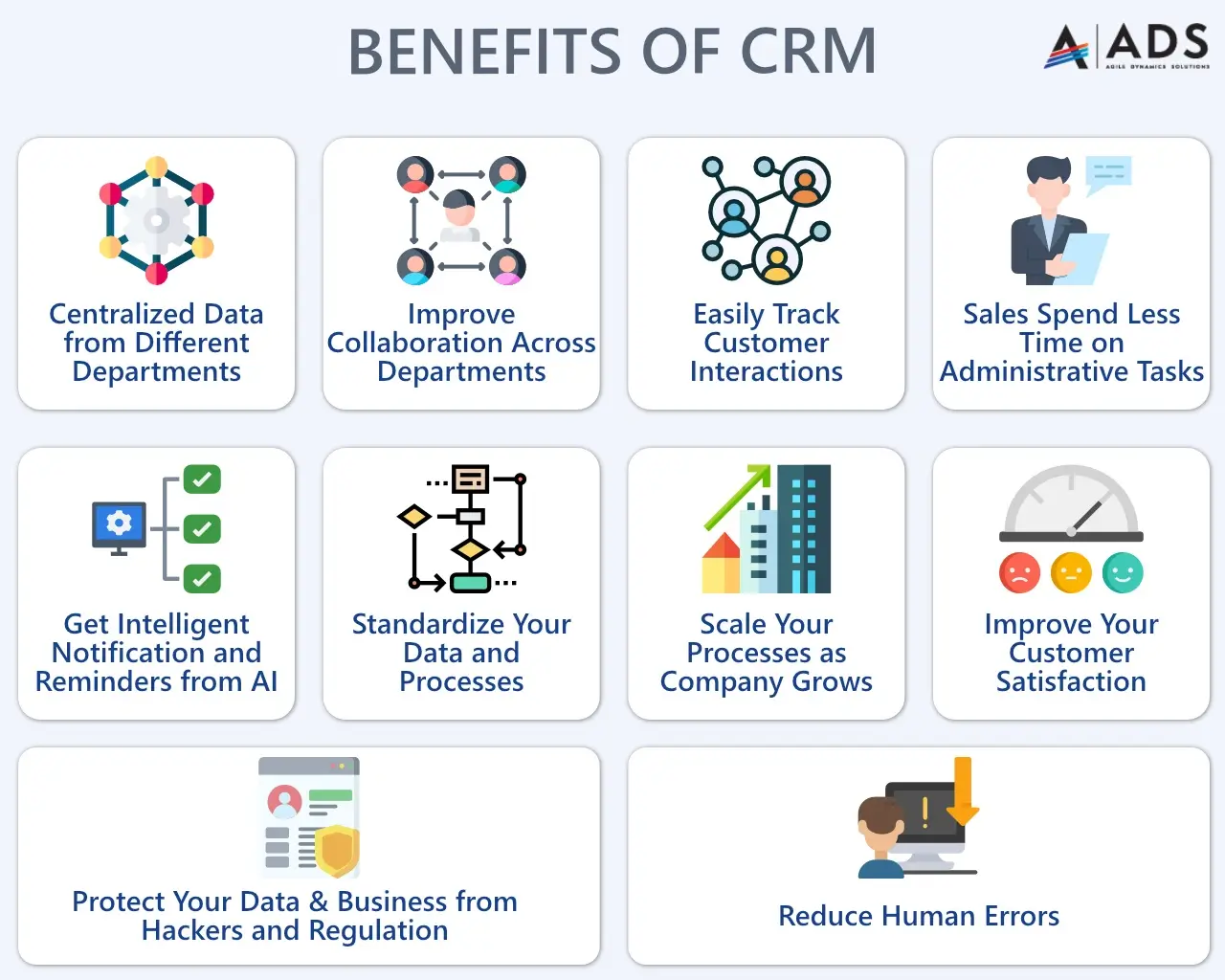
Customer Relationship Management (CRM) systems offer numerous benefits in sales operations:
Automation of Repetitive Tasks
Sales professionals often find themselves buried in repetitive administrative tasks that consume precious time and energy.
However, CRM software can automate these tasks, allowing your sales team to focus on what matters - building relationships and closing deals.
From email templates and follow-up reminders to scheduling appointments, CRM takes care of the mundane tasks, allowing your sales team to concentrate on what they do best.
Lead and Contact Management
Keeping track of leads and managing contacts can be a smooth process with a structured system in place.
With CRM, all customer information is centralized, providing a comprehensive overview of each individual's preferences, interactions, and history.
This enables your sales team to understand their prospects better and effectively tailor their sales approach.
With easy access to customer data and activity tracking, your team can engage in meaningful conversations and nurture relationships, leading to higher conversion rates.
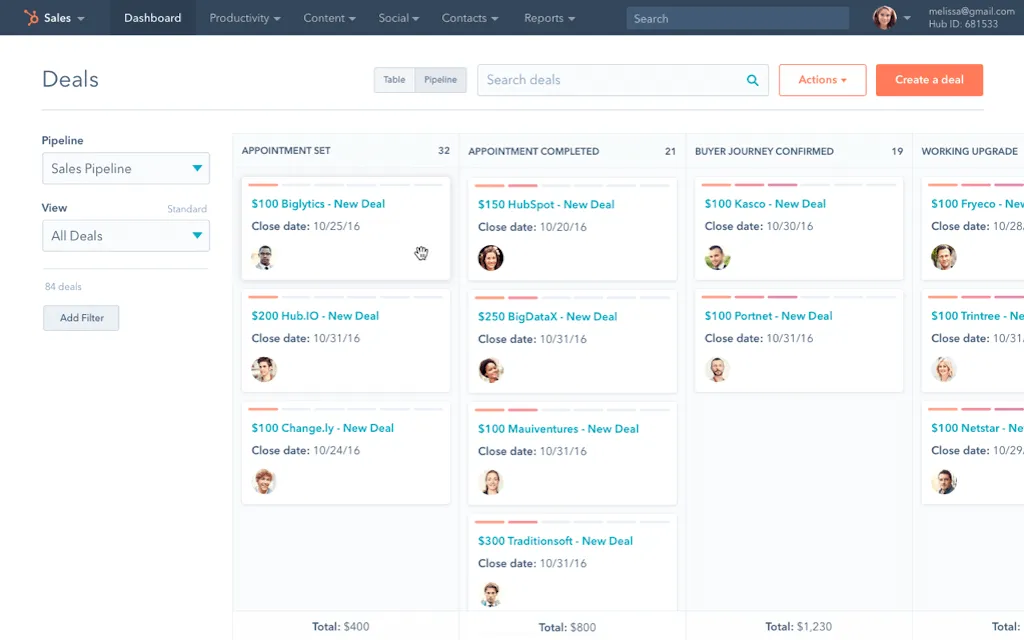
Sales Performance Tracking and Reporting
Understanding your sales team's performance is vital for making informed decisions and setting realistic targets.
CRM provides real-time analytics and reporting tools that allow you to monitor key performance indicators, track conversion rates, analyze revenue trends, and identify areas for improvement.
With access to actionable insights, you can identify bottlenecks in your sales process and implement strategies to overcome them, ultimately driving sales team efficiency and success.
Implementing CRM for Sales Teams
Implementing CRM (Customer Relationship Management) for sales teams is a strategic process that can greatly enhance a company's sales operations. Here's how to successfully integrate CRM into your sales operations:
Training Sales Teams on CRM Usage
Introducing CRM to your sales team requires proper training and guidance. Familiarize your team with the CRM software and its functionalities through comprehensive training sessions.
Provide ongoing support and encourage adoption by highlighting the benefits and showcasing success stories.
By investing time and effort into training your sales team, they will become proficient CRM users, maximizing the software's potential and reaping the rewards.
Aligning CRM with Sales Strategies
To truly leverage the power of CRM, aligning it with your sales strategies and goals is essential.
Involve your sales team in decision-making and customize the CRM system to match their unique workflows and processes.
Incorporate your sales pipeline stages, opportunity tracking, and sales forecasting into the CRM platform. It enables seamless collaboration and ensures the software becomes integral to your sales team's operations.
Customizing CRM Workflows for Sales Processes
Every sales team has its processes and workflows that contribute to its success. CRM allows you to customize workflows to match your specific requirements.
From creating customized sales dashboards to defining sales stages and automating follow-up tasks, tailoring CRM workflows streamlines your sales processes and enhances team productivity.
You can ensure a smooth and efficient sales operation by designing workflows that align with your team's unique needs.
Driving Sales Success with CRM
Customer Relationship Management software is much more than just a fancy database.
It is a powerful tool that can improve your sales team's productivity and enhance overall performance.
By automating repetitive tasks, enabling efficient lead and contact management, and providing valuable performance tracking and reporting capabilities, CRM becomes innovative for sales success.
But you can make the whole process more effective by using a CRM integrated Chatbot.
For example, BotPenguin a free custom chatbot development platform aces in providing CRM integrations that include popular CRM platforms like ZOHO, Hubspot, Salesforce, Insightly, and many more.
With the combined benefits of CRM and Chatbots, BotPenguin makes automation services like lead generation and customer support more effective by unifying marketing and sales efforts in one place:
- Marketing Automation
- WhatsApp Automation
- Customer Support
- Lead Generation
- Facebook Automation
- Appointment Booking
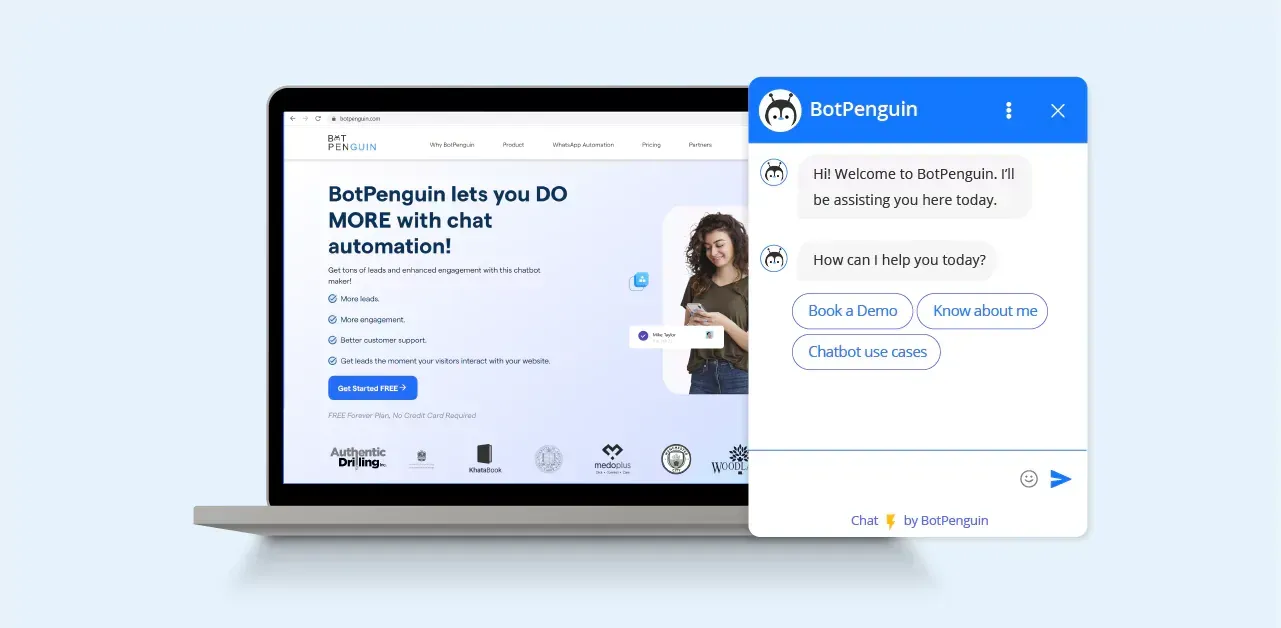
Leveraging CRM for Lead Management
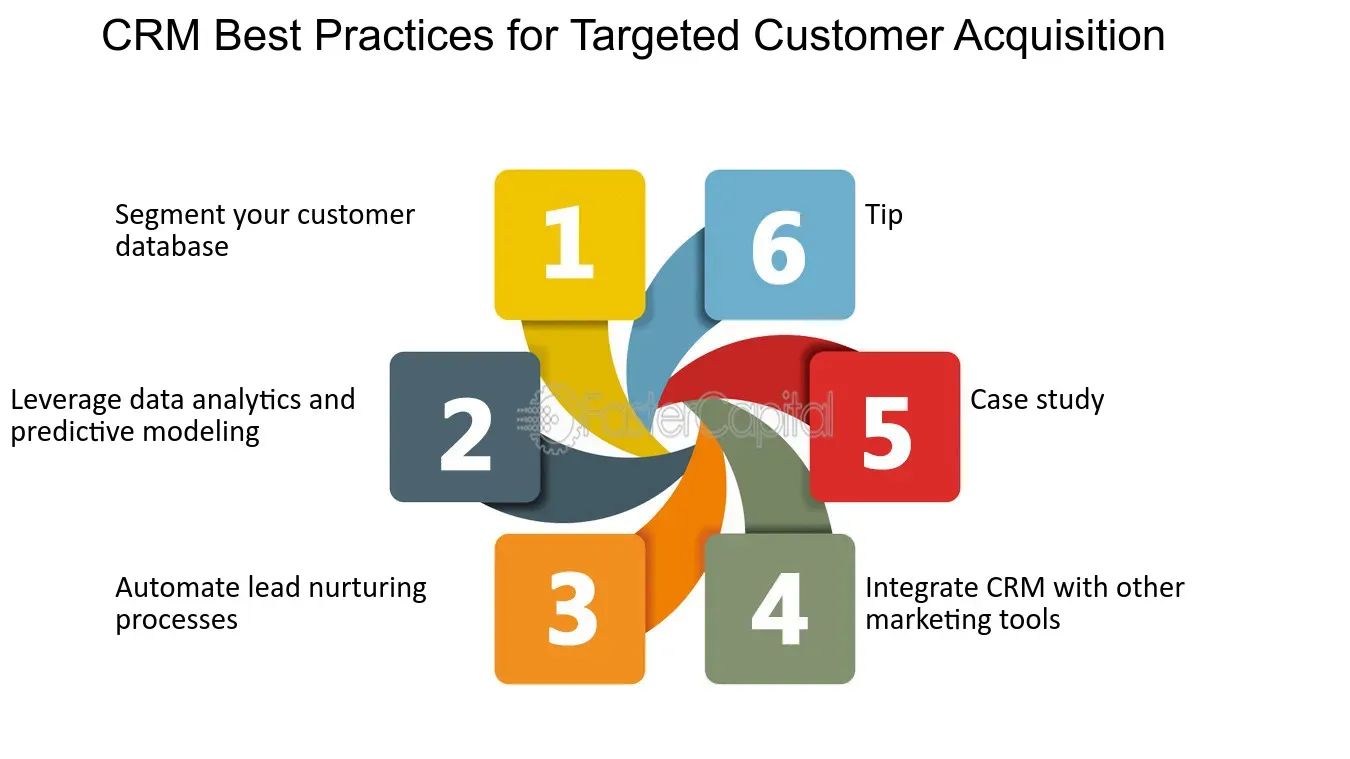
Leveraging CRM (Customer Relationship Management) for lead management is a strategic approach to optimizing the process of acquiring and nurturing potential customers. Here are key steps to make the most of CRM in lead management:
Capturing and Organizing Leads in CRM
In any sales process, leads are the lifeblood of business growth. CRM software can be innovative in capturing and organizing leads.
With CRM, you can easily input lead information, including their contact details, lead source, and any additional notes.
By centralizing all leads in one place, your sales team can quickly access and manage their leads, ensuring potential customers can easily navigate the cracks.
Lead Scoring and Qualification
Not all leads are created equal, and that's where CRM's lead scoring and qualification features come in handy.
By assigning scores based on predetermined criteria, CRM helps your sales team prioritize their efforts on leads most likely to convert.
This saves time and resources by focusing on high-quality leads, increasing conversion rates, and maximizing the efficiency of your sales team.
Effective Lead Nurturing Strategies
Lead nurturing is a crucial aspect of the sales process, and CRM plays a vital role in facilitating effective nurturing strategies. You can automate personalized email campaigns, schedule follow-ups, and track interactions with leads through CRM.
Your sales team can build relationships and create a positive impression by nurturing leads with targeted and relevant content.
CRM ensures no leads fall through the cracks and guarantees consistent communication, which is essential for nurturing long-term customer relationships.
Suggested Reading:
Enhancing Customer Relationships with CRM
CRM is instrumental in enhancing customer relationships. Here's how CRM contributes to stronger customer relationships:
Managing Customer Interactions and Communications
CRM, or Customer Relationship Management, goes beyond lead acquisition. It's about effectively managing all customer interactions and communications.
CRM provides a complete view of a customer's communication history, helping sales teams offer personalized and informed service, whether it's through calls, emails, or in-person meetings. This fosters strong relationships and reinforces customer value.
Tracking Customer Engagement and Feedback
CRM tracks customer engagement and feedback, offering insights into how customers interact with your brand.
This data helps in creating more targeted and effective marketing strategies. CRM also gathers customer feedback, allowing teams to address concerns and ensure customer satisfaction.
Personalizing Customer Interactions with CRM Insights
CRM aids in personalizing customer interactions. CRM insights allow sales teams to tailor their approach to customers' needs and preferences.
Understanding customer behavior, purchase history, and interests enables offering personalized recommendations and targeted promotions.
This personalized approach boosts customer satisfaction, loyalty, and sales and revenue.
Streamlining Sales Processes with CRM
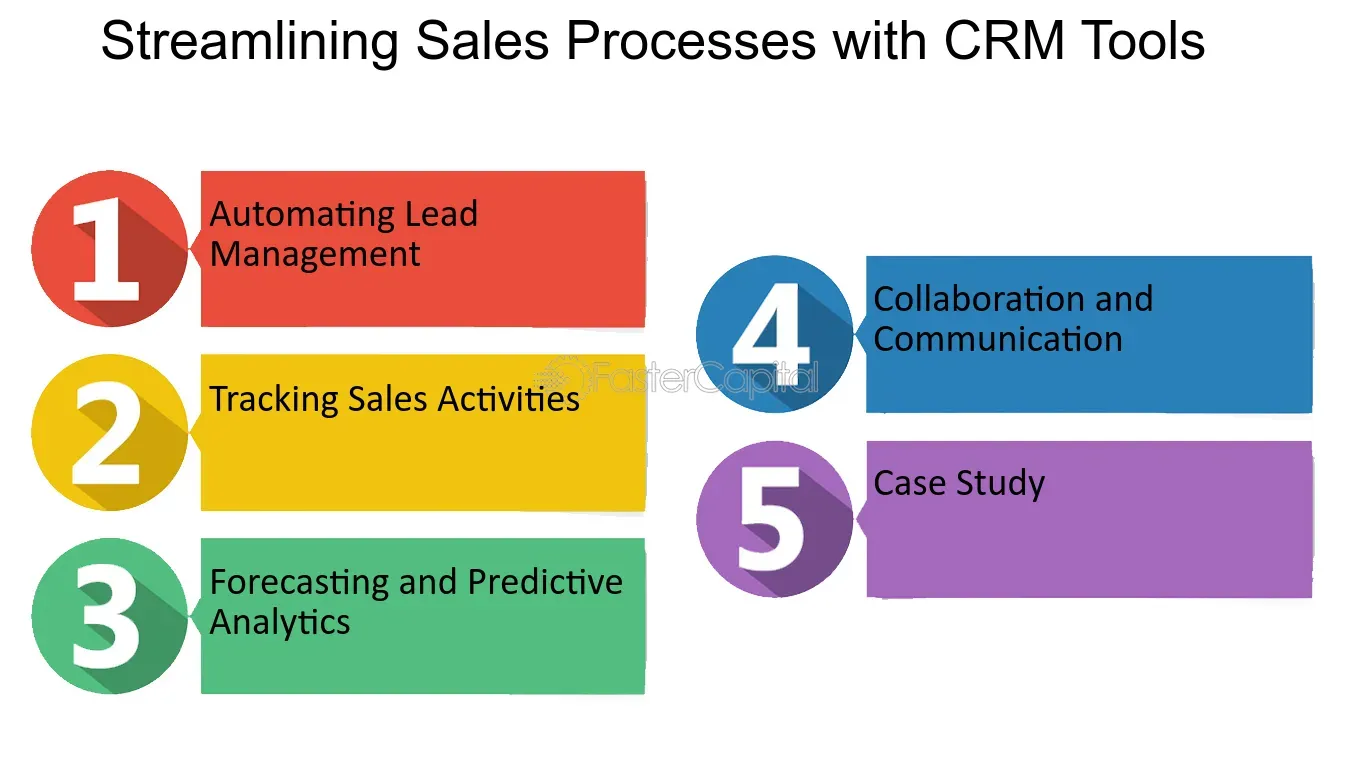
CRM can streamline sales processes, from managing sales pipelines and opportunities to automating sales tasks and facilitating collaboration within sales teams.
Managing Sales Pipelines and Opportunities
A sales pipeline is like a roadmap that guides sales teams through the entire sales process, from lead generation to closing deals. CRM systems visually represent the sales pipeline, giving salespeople a clear view of their prospects and where they are in the buying journey.
Within the CRM, opportunities can be categorized and assigned to sales team members, ensuring that each prospect deserves the attention.
By using CRM to manage sales pipelines and opportunities, sales teams can track progress and prioritize their efforts effectively.
Automation of Sales Tasks with CRM Workflows
Sales teams often have repetitive tasks that can be time-consuming and mundane. CRM workflows enable salespeople to automate these tasks, freeing their time for more valuable and strategic activities.
For example, a CRM workflow can be set up to automatically send follow-up emails to prospects who have shown interest in a product.
This automation ensures that no potential opportunity falls through the cracks and reduces the chances of human error.
Collaboration and Communication within the Sales Team
Sales is a team effort, and effective collaboration and communication are essential for success. CRM systems provide tools that facilitate collaboration amongst the sales team, improving coordination and enhancing efficiency.
CRM platforms often offer features like shared calendars, document sharing, and internal messaging systems. These features let salespeople stay updated on each other's activities, share important information, and communicate effectively.
Integrating CRM with Other Sales Tools
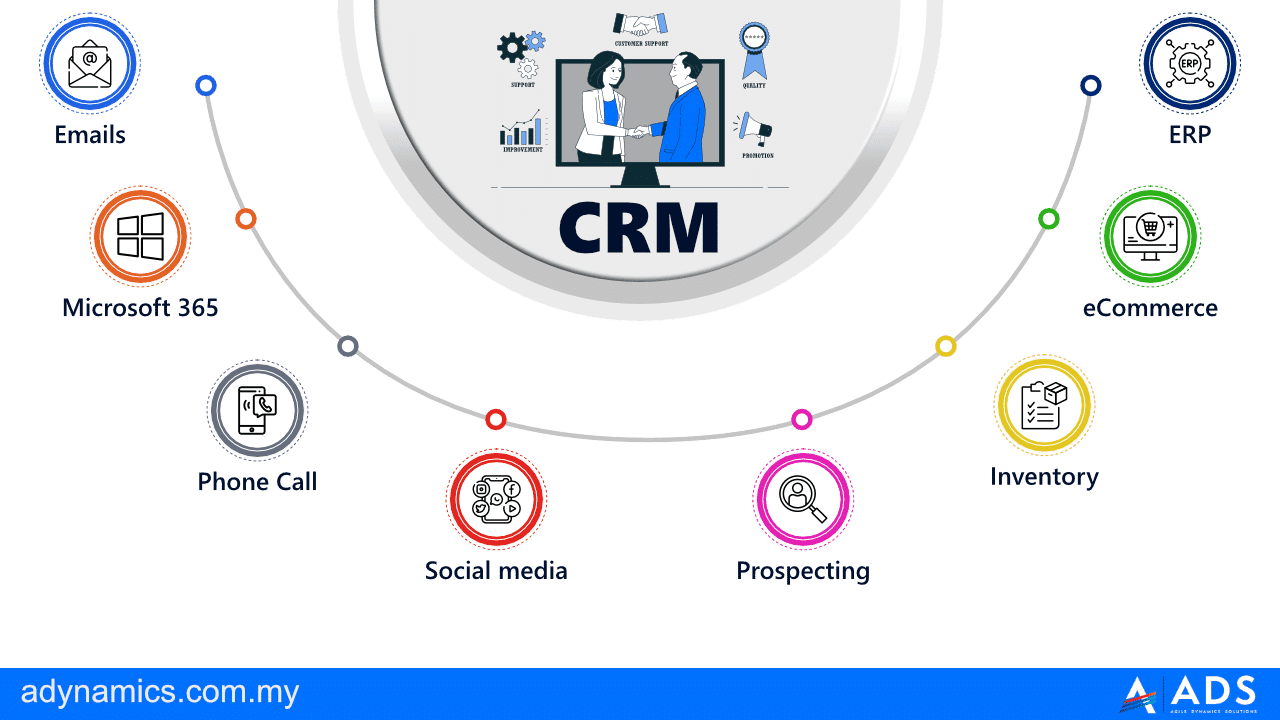
To further streamline sales processes, it is essential to integrate CRM with other sales tools and platforms. This section will explore the benefits of CRM integration with email marketing tools, sales communication platforms, and sales analytics.
CRM Integration with Email Marketing Tools
Email marketing is a powerful tool for engaging prospects and nurturing leads. By integrating CRM with email marketing tools, businesses can sync data between the two systems, allowing for a seamless flow of information.
For example, when a lead clicks on a link in an email campaign, the CRM can automatically update the prospect's status and trigger a sales follow-up.
This integration ensures sales teams have up-to-date information on how prospects interact with marketing materials.
Integration with Sales Communication Platforms
In today's digital age, sales communication platforms connect salespeople with prospects. Integrating CRM with these platforms centralizes sales conversations, making it easier for sales teams to manage and track customer interactions.
By linking CRM with communication tools like Slack or Microsoft Teams, salespeople can log their conversations and ensure that vital information is not lost.
This integration enables teams to collaborate on deals effectively and provides transparency across the sales organization.
CRM and Sales Analytics Integration
Data is the backbone of effective sales strategies. Sales analytics tools provide valuable insights into sales performance and trends.
Integrating CRM with sales analytics tools allows businesses to analyze data from CRM systems and gain actionable insights.
By combining CRM data with sales analytics, businesses can identify patterns, track key performance metrics, and make informed decisions.
This integration helps sales teams optimize their sales processes and drive better results.
Suggested Reading:
Conclusion
The relationship between salespeople and CRM is like a fine wine – it matures and gets better with time and engagement.
When used effectively, CRM can enhance sales team performance in four critical areas:
Efficiently searching, sorting, and qualifying leads.
Systematic and timely follow-up on sales opportunities.
Prioritizing and streamlining follow-up activities.
Accelerating target reach rates.
However, reaping these benefits requires salespeople's effort, comprehension, and commitment. They must recognize that keeping the CRM updated is pivotal for their success.
Furthermore, sales teams should align their activities with best practices, fostering information sharing and more effective CRM utilization.
Adopting a CRM bot can thus raise your company's sales, improve team collaboration, and reduce the time your team spends on data entry.
Botpenguin is a platform that can help you increase your company's client reach and profitability.
Call Botpenguin today to take your business to the next level!
Thank you for stopping by!
Frequently Asked Questions (FAQs)
What is a CRM system, and how can it improve sales team productivity?
A CRM system manages customer interactions and enhances sales team productivity by streamlining processes and improving collaboration.
What are the benefits of using CRM for sales pipeline management?
CRM benefits sales pipeline management by visualizing the sales process and enabling progress tracking and opportunity assignment.
Can CRM automate sales tasks?
Yes, CRM can automate sales tasks, reducing errors and ensuring follow-ups.
How can CRM improve collaboration within the sales team?
CRM improves sales team collaboration with shared calendars and messaging.
What other sales tools can CRM integrate to drive productivity?
CRM can integrate with email marketing, sales communication, and analytics tools to boost productivity.
How can businesses ensure CRM adoption and success?
Successful CRM adoption requires training, highlighting benefits, addressing concerns, and ongoing support.



